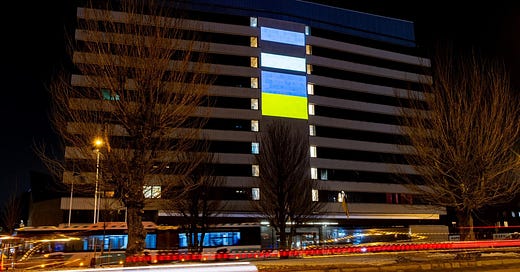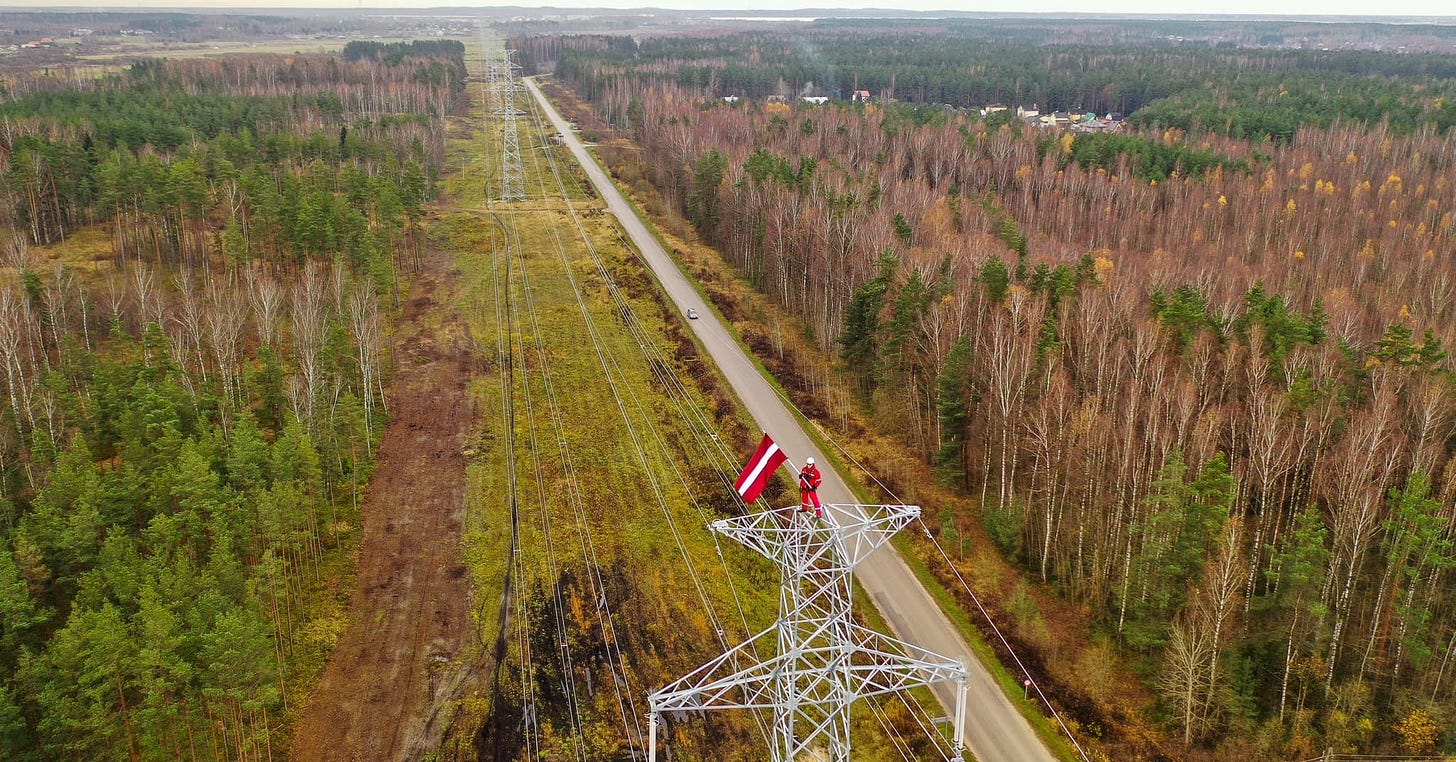Dear Readers,
It has been three years since the start of Russia’s full-scale war in Ukraine and one month since Donald Trump began his second term. The situation is changing rapidly, but here is a reflection on the impact on the Baltic countries as of February.
Foreign Affairs & Defense
“Today, it became clear that the free world needs a new leader. It’s up to us, Europeans, to take this challenge.” That is the response of EU foreign policy chief and former Estonian Prime Minister Kaja Kallas following the explosive Oval Office meeting between Ukrainian President Volodymyr Zelensky and Donald Trump and JD Vance on Feb. 28. European leaders immediately threw their support behind Zelensky. On Feb. 24, the EU adopted its 16th sanctions package on Russia.
Russian officials praised the Oval Office scene: “The insolent pig finally got a proper slap,” said Dmitri Medvedev, deputy chairman of Russia’s security council and former president. “The [Trump] administration is rapidly changing all foreign policy configurations,” said Kremlin spokesman Dmitry Peskov. “This largely aligns with [Russia’s] vision.”
Around the Munich Security Conference earlier in the month, Kallas criticized Trump’s lengthy phone call with Russian autocrat Vladimir Putin and US Defense Sec. Pete Hegseth’s dismissal of Ukraine’s territorial integrity and future NATO accession: “It’s appeasement. It has never worked.” Former Latvian PM Krišjānis Kariņš on NPR warned that small countries like the Baltic states “cannot exist without multilateralism.” And, watch Kallas’ interview with CBS’ Margaret Brennan.
Baltic foreign ministers went to Washington, DC, in early February to meet with Trump administration officials and members of Congress, including the bipartisan Baltic Freedom Caucus. Ministries reported that meetings underscored the “shared understanding that Russia is the most direct threat to the Euro-Atlantic and Allied security.” Since then, the Trump administration has openly sided with Putin, including voting with Russia against a UN resolution condemning Russia’s invasion of Ukraine and rolling back Defense Department offensive cyberoperations against Russia. And, read Latvian Foreign Minister Baiba Braže’s statement at the UN Security Council on behalf of the Baltic countries.

Baltic intelligence reports note that Russia is preparing for a possible military confrontation with NATO — potentially within the next five years. For the Baltic Bulletin, Māris Andžāns looks at three decades of Baltic military cooperation. And, Thomas Shattuck considers Lithuania-Taiwan relations.
Nearly 500 Baltic citizens could be among the 1.5 million people slated for deportation from the US, according to an Immigration and Customs Enforcement (ICE) Enforcement and Removal Operations list. The list includes 259 Lithuanian, 125 Latvian, and 94 Estonian citizens.
Domestic Affairs
Laurynas Kasčiūnas, Lithuania’s former defense minister, was elected the new chairman of the Homeland Union party, which faced a significant defeat in last October’s election. Kasčiūnas is known for his hawkish stance on defense and Russia, as well as for his opposition to progressive legislation.
A no-confidence vote initiated by Estonian opposition parties Centre and EKRE over offshore wind farming failed to push Climate Minister Yoko Alender (Reform) from her post. In Latvia, Prime Minister Evika Siliņa asked for the Ministers of Education, Welfare, and Transport to resign in a cabinet shake-up.
Remigijus Žemaitaitis, controversial leader of Lithuania’s Nemunas Dawn party, wrote to Elon Musk, requesting information about grants provided to Lithuanian NGOs. It was a near identical copy of a letter sent by Slovakia’s PM Robert Fico. Lithuanian journalist Birutė Davidonytė warns that pro-Russian politicians in Europe may be coordinating.
Infrastructure & Economy
The Baltic states decoupled from the BRELL electricity grid and synchronized with Europe. The 1.6 billion euro project is part of a decades-long effort to untangle energy infrastructure from Russia and was accelerated following Russia’s full-scale invasion of Ukraine. It is seen as critical for Baltic security: "This is freedom, freedom from threats, freedom from blackmail," said EU chief Ursula von der Leyen.
The severed telecommunications cable between Sweden and Latvia has been repaired. Early assessments of the damage included suspicions of “gross sabotage”, but Swedish authorities now say the January incident was likely an accident brought about by “weather conditions and deficiencies in equipment and seamanship.”
Threats of tariffs on the EU from the Trump administration will have negative indirect impacts on Baltic economies. While relatively small direct trading partners of the US, the Baltic countries are integrated into European supply chains and the instability caused by a trade war could negatively affect economies even more than tariffs directly.
After months of intrigue, the Saeima confirmed Mārtiņš Kazāks as the governor of the Latvian central bank. Kazāks first term ended in December, but political jockeying left the position without a successor at the end of 2024. And, economist Morten Hansen considers why Latvia’s economic growth has lagged behind that of Lithuania.
Aitäh, paldies and ačiū,
Indra Ekmanis
Baltic Bulletin Editor
In Case You Missed It
Three Decades of Baltic Military Cooperation and the Way Ahead - Baltic Bulletin - Māris Andžāns
Is Taiwan Fever Breaking in Lithuania? - Baltic Bulletin - Thomas Shattuck
Ambassador Series: In Conversation with Amb. Eitvydas Bajarunas - Event
Thanks for reading this edition of the Baltic Roundup! Leave us a comment to let us know what you think of this month’s update.





